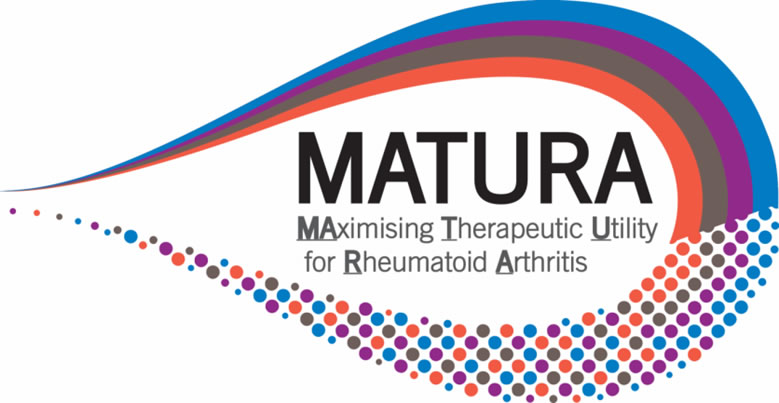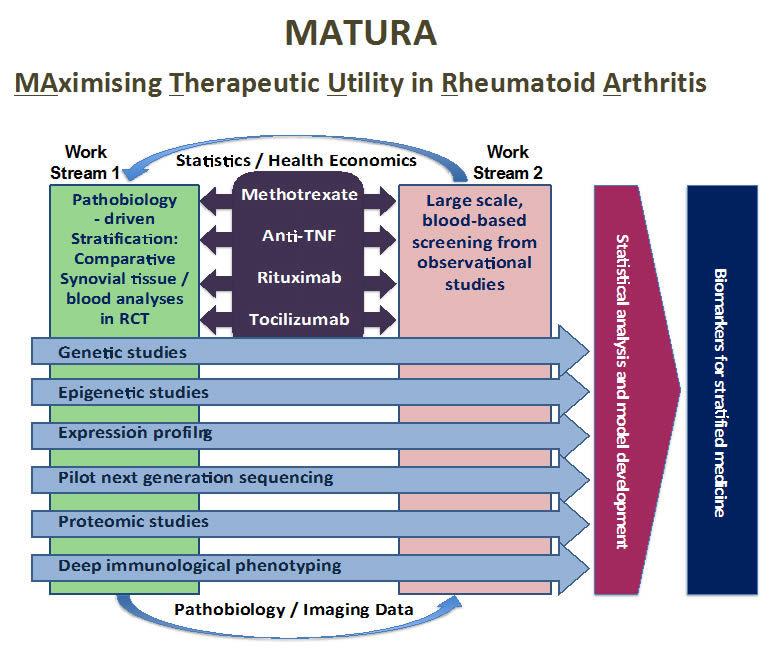MAximising Therapeutic Utility in Rheumatoid Arthritis

Rheumatoid arthritis (RA) is a long-term condition in which painful inflammation of joints can lead to joint damage and disability, if untreated. It affects 1 in 100 people and, although more common in the older age group, can affect people of any age. Research has consistently shown that the earlier that effective treatment is introduced, the better the control of joint inflammation and the less likely patients are to develop permanent joint damage and the more likely they are to stay in employment.
Whilst a number of treatments are available for RA, none of them work for everyone and, currently, doctors have no way of telling which treatment will work best for which people with RA. The aim of MATURA is to find and develop tests that will allow better targeting of the available treatments to those who would benefit most, thereby improving the selection of the best treatment for individual patients.
predictive of response to biological therapy in patients with rheumatoid arthritis





